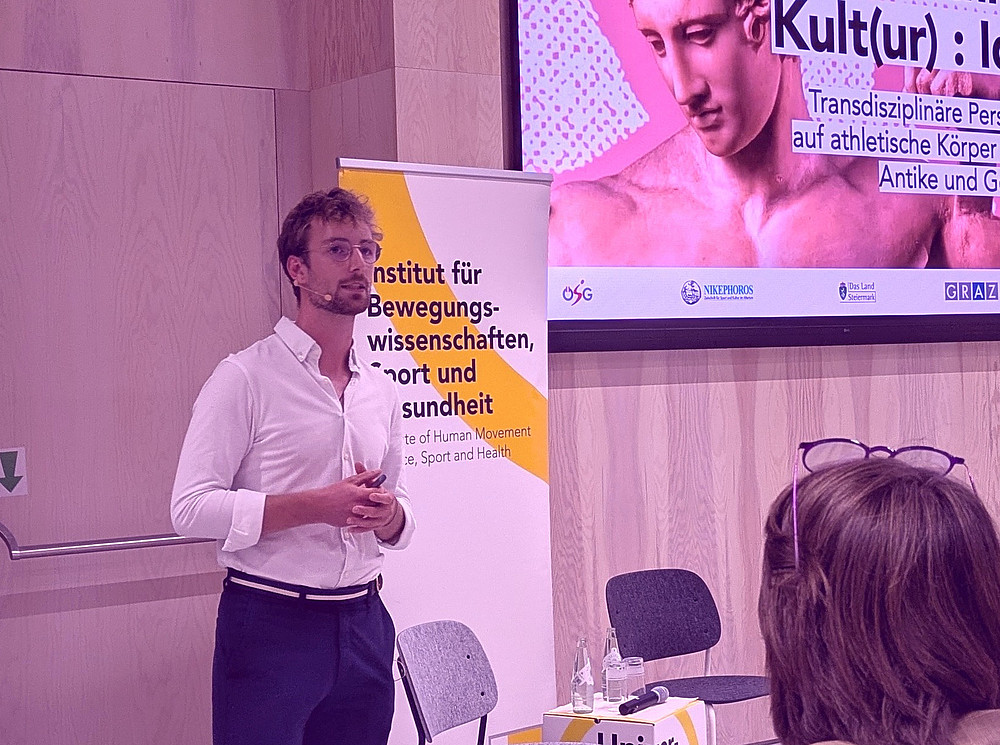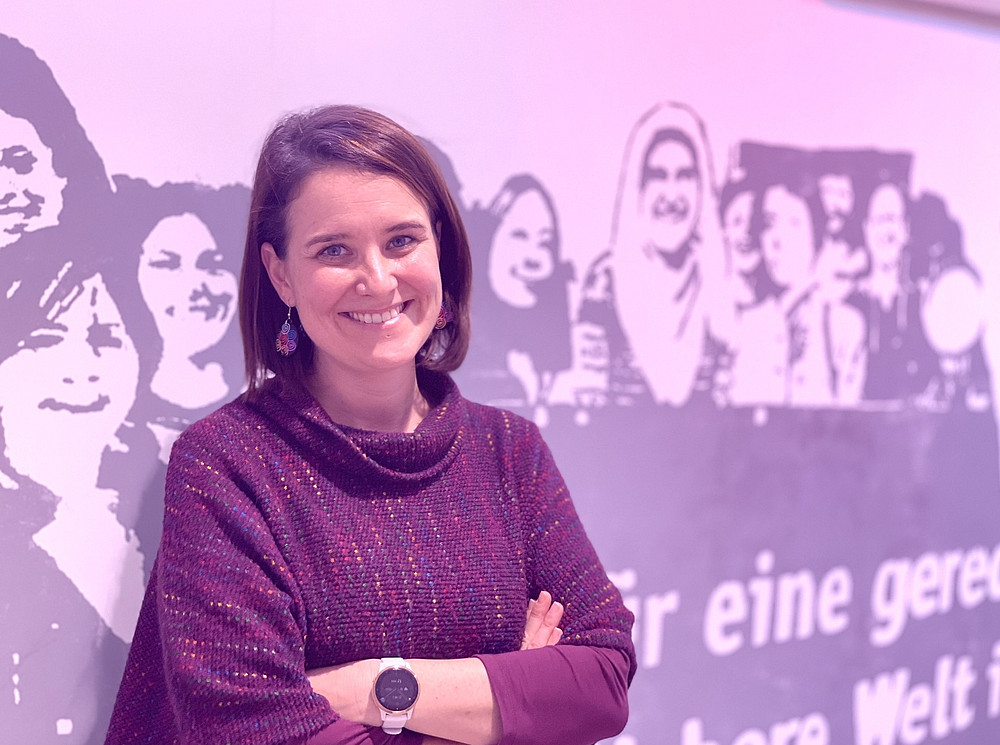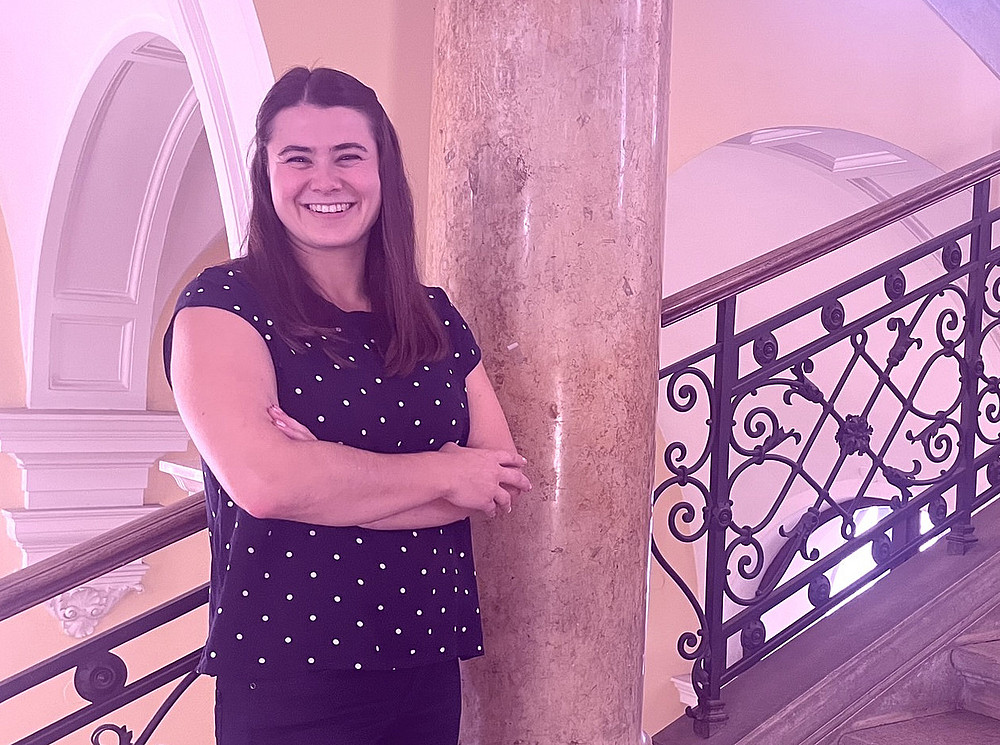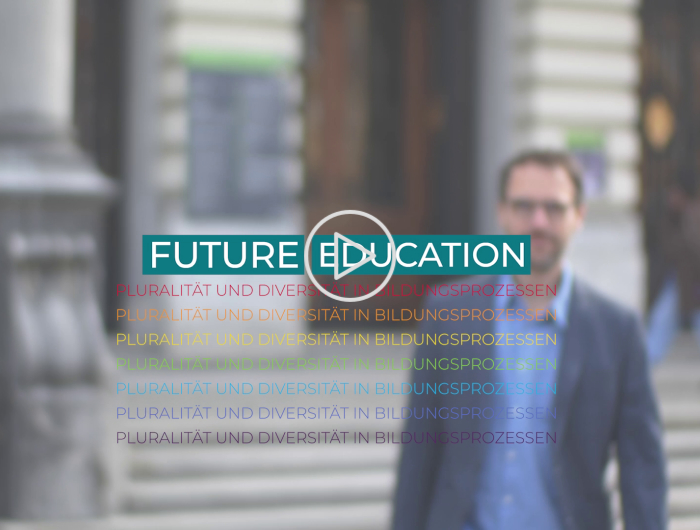In the course of considerable social change, educational settings both inside and outside of school are increasingly characterized by a sensitivity to pluralism and diversity: Exemplary areas are migration movements, gender orders, and people with special needs. For the design of educational processes, this results in the demand to recognize each individual person in his or her unique situation in life, to avoid discrimination and exclusion, and to ensure that everyone has equal opportunities. In this research cluster, pluralism and diversity are considered both challenges and opportunities on a societal and individual level. The research focuses on aspects of recognition (e.g., from creating awareness in society to identifying individual performance potential) and action (e.g., from societal interventions to promoting individual performance potential).
Young researcher Tarik Orliczek provides impetus for conference on the reception of ancient body images
The conference "Körper : Kult(ur) : Athletics : Ideal" was a success - not only in terms of content, but also on a personal level: for Tarik Orliczek, junior researcher and member of the "Plurality and Diversity" cluster, it was the first conference in which he played a key role in the organisation.
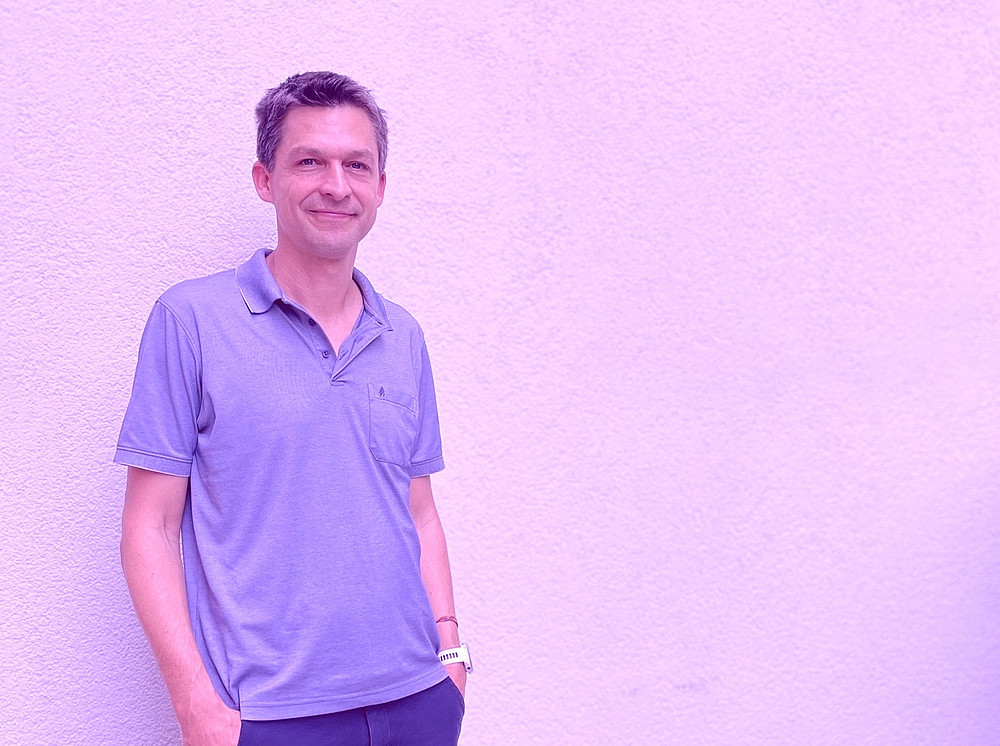
"I want to demystify creativity"
How can creativity be measured? Is artificial intelligence creative? Are creative people more intelligent than non-creative people? Mathias Benedek, member of the "Plurality and Diversity" cluster and keynote speaker at EARLI 2025, gets to the bottom of these and other questions in his research.

"Do what you can!": Workbook helps you find the perfect job
What is actually relevant when choosing a career? This question is the focus of the workbook "Do what you can!" by the two plurality cluster members Aljoscha Neubauer and Barbara Weißenbacher from the Institute of Psychology at the University of Graz. In this interview, Barbara Weißenbacher talks about who the workbook is suitable for and how it can best be used.
Participants aged 10 to 11 years wanted for numeracy study
A team of researchers led by Stephan Vogel, a member of the Diversity and Plurality Cluster, and his doctoral student Shiva Taghizadeh are currently investigating how the brain works when solving arithmetic problems in the research project "Neurocognitive mechanisms of metacognition in arithmetic". Participants aged 10 to 11 are currently still being sought.
Christina Krause: "You have to bake the students good bread so that they get a taste for maths"
Assistant Professor Christina Krause actually wanted to become a teacher. Now she teaches prospective maths teachers at the University of Graz and teaches them how to make maths appealing to students. She is involved in three clusters in the FUTURE EDUCATION programme: Educational Technology(s), MINT+ and Plurality and Diversity.
Lisa Paleczek: "It's important to me that the school system doesn't lose children one drop at a time"
Assistant Professor Lisa Paleczek's research centres on inclusive and diversity-sensitive lesson design. She is a member of three clusters in the FUTURE EDUCATION network: Plurality and Diversity, Languages and Educational Technologies.
"I like having questions and being able to answer them."
Are mathematicians from another planet? Michaela Meier investigated this question in her dissertation. Her research also focusses on how much mathematical creativity non-geniuses bring to light.
Graz University to get an interreligious dialog center
A center for interreligious and intercultural dialogue is to be established at the University of Graz. There is a great need for corresponding workshops and coaching for teachers. Applications for funding for the center have already been submitted.
Video
You want to know why dealing with the diversity of people is a future topic of education?
The researchers of the cluster give their answers to this question.
Research areas
We consider the diversity of individuals to be a strength and an indispensable component of a diverse society. Our goal is to find ways to optimally utilize and promote diversity in the educational landscape by considering numerous aspects of diversity.
In our research, multilingualism in particular plays a central role, as it represents the cultural diversity of a globalized world. For example, we investigate the connection between social networks and language development in linguistically heterogeneous classes. Another focus is on how health and mental health education can be strengthened in different contexts.
This research focus deals with the question of how schools and teachers can create the most inclusive learning environment possible for all students in the future. The focus is on the development of teaching materials and the professionalization of teachers in the field of inclusive education. Here, practice-oriented and empirical approaches are combined in order to enable a low-threshold transfer into the educational system and everyday school life. Furthermore, we investigate which conditions are necessary for inclusive education to be successfully implemented.
The results of this research should help to ensure that all children and young people can experience equal participation in society, as far as possible, regardless of their individual situation. Our research groups develop and evaluate concrete teaching materials, data-based decision-making strategies for teachers, and high-level didactic methods.
Successful education is expressed in the fact that all learners can realize their individual potentials (talents) in various areas in the best possible way. This serves not only the achievement of personal life goals, but also the further development of society.
To ensure this, a comprehensive understanding is needed of what the cognitive and neural bases of these potentials are, how they can be made visible, how talents can develop from them, and how this development process can be supported. This interdisciplinary research cluster explores these questions and develops new concepts for recognizing and promoting individual potential in an educational context.
Research project - "Advancement of Divergent Thinking Assessment".
Habilitation project - Dr. Michaela Meier on mathematical expertise and creativity
Cluster spokespersons
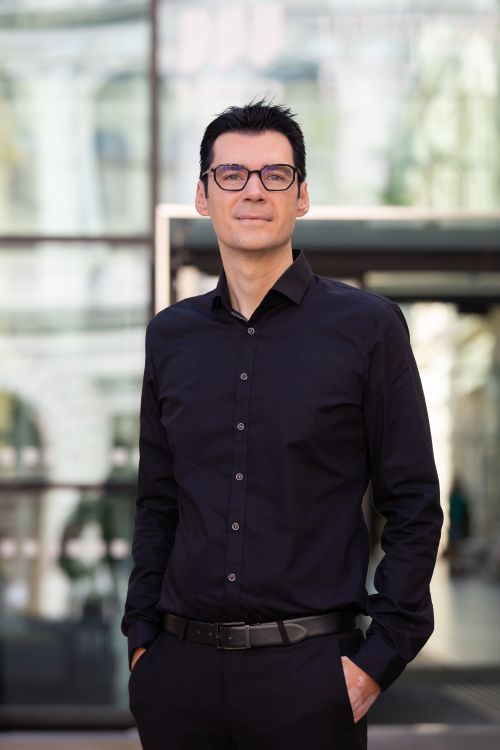
Univ.-Prof. Mag. Dr.rer.nat. Roland Grabner
Institut für Psychologie
http://psychologie.uni-graz.at/de/begabungsforschung/team/roland-h-grabner/
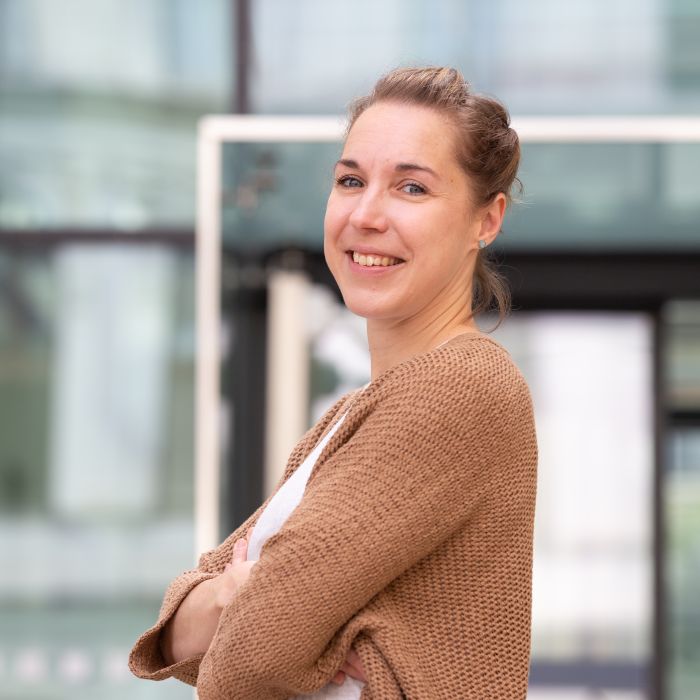
Ass.-Prof. Dr.rer.nat. Christina Krause
+43 316 380 - 5060
Fakultäres Didaktikzentrum für Naturwissenschaften und Mathematik für die Unterrichtsfächer Biologie, Chemie, Mathematik und Physik (DINAMA)
Mi, 14:15-15:15 Uhr und nach Vereinbarung, auch online
https://tinyurl.com/ChristinaKrause
